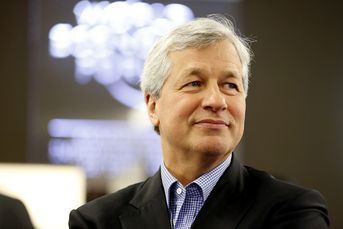Biden perpetuates advisor tropes, but end goal is valiant
 President Joe Biden
President Joe Biden
The president's deal in describing a few bad apples risks tarring the whole industry with the same brush.
President Biden rarely talks about financial advisors directly. By our count, recent presidents have done so on average once a decade. So when financial advice is the sole reason he’s on the podium, we naturally devour every word.
Last week, Biden introduced a Department of Labor rule proposal that would require more advisors to act as fiduciaries and mitigate conflicts of interest when making retirement savings recommendations. He took aim at “junk fees” and “self-serving” advisors who put their interests ahead of their clients’ best interest.
“Most” advisors, he said, provide an honest service at a fair price, but Biden spent the vast majority of his address lambasting “unscrupulous” professionals who are “scamming” families out of hard-earned money. This kind of “financial fraud,” he added, not only impacts people’s retirement but infringes on the American dream.
Well, yes, bad financial advice, made with the advisor’s wallet in mind rather than the client’s returns, is abhorrent and should be stamped out. But describing a few bad apples with such zeal, while evocative, risks tarring the whole industry with the same brush to the general public. Before you know it the words “financial advice” become shorthand for Bernie Madoff. For the good of the retirement saver, these conflicts must be rooted out, but the president’s words buried the stellar work of multitudes of client-caring advisors.
Biden’s comments also buried the nuances of what the DOL is trying to do, which was comprehensively detailed in a series of press releases from the White House, a fact sheet from EBSA and the 277-page proposed rule. InvestmentNews writers Mark Schoeff Jr. and Emile Hallez have reported with aplomb on how the DOL wants to alter the definition of fiduciary by amending a 1975 rule that established a five-part test to determine whether advice triggered fiduciary duty to a client.
Specifically, the new proposal targets the “regular basis” aspect of that test, changing that requirement to include one-time advice provided by those who regularly make investment recommendations in the course of their business. This would then apply to recommendations to roll 401(k) funds into IRAs, an element that was heavily contested in the ultimate version proposed by the Obama administration, and annuities.
Even for most advisors who already work to a fiduciary standard, the rule will present some challenges, but for brokers and insurance professional who claim Regulation Best Interest, the Securities and Exchange Commission’s broker standard, is sufficient,it could change their regulatory lives.
Ultimately, tightening up the standards for recommendations related to 401(k)s will only help the retirement saver feel more confident about getting conflict-free advice. That’s a good thing and should be applauded, but maybe with a little less “underhand” advisor grandstanding from our president.
Is AI a force for good or bad for the wealth industry?
Learn more about reprints and licensing for this article.







